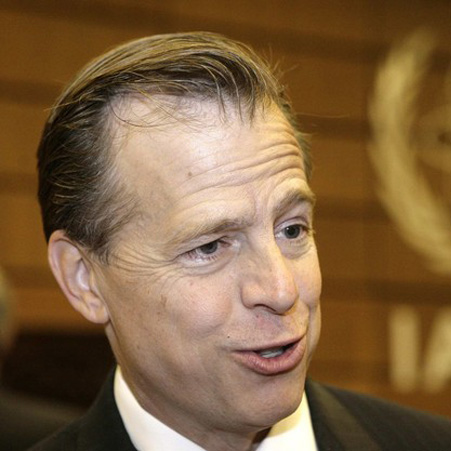Azerbaijan, Baku, March 11 / Trend , T.Konyaeva/
The real purpose of enriching uranium to 20 percent is under question, since Iran is not able to independently produce fuel for the reactor in Tehran and can not use it in the timeframe, US envoy to International Atomic Energy Agency (IAEA), Glyn Davies, believes.
"Iran's inability to make the fuel for the TRR calls into question the real purpose of enriching to 20 percent. It cannot be used for TRR fuel in the timeframe Iran says it needs such fuel, but it does bring Iran much closer to the production of weapons grade fissile material," Davies said in an interview with Trend .
Approximately 85% of the enrichment work necessary to make weapons-grade uranium is already done if you have produced 20% enriched uranium, he said.
In February, Atomic Energy Organization of Iran officially confirmed the beginning of work on the production of uranium with 20-percent isotope-235. The head of the organization, Ali Akbar Salehi, said that a special cascade of centrifuges to separate isotopes was created for this. According to him, it is able to produce up to five kilograms of 20-percent enriched uranium per month for Tehran research reactor that produces medical isotopes.
"The question is not so much the ability to enrich to 20%, as the IAEA has reported that Iran has apparently already done so, said Davies. The issue instead is a question about the subsequent technical step of using the 20% enriched uranium to actually manufacture fuel assemblies that would go into the reactor."
According to Davies, even the U.S. does not have an existing assembly line for the manufacture of this specific kind of fuel.
"If Iran were to cut corners to manufacture this fuel more quickly, this would raise significant safety concerns," Davies said.
He also said that the isotopes that Iran needs for its hospitals and cancer patients can be bought on the international market, "so there should be no need for the Iranian people to suffer".
The U.S. and other Western countries accuse Iran of developing nuclear weapons for military purposes under the guise of peaceful nuclear energy program. Tehran denies the charges, saying that its nuclear program is aimed solely at meeting the country's electricity needs. The U.N. Security Council adopted five resolutions in connection with the suspension of Iran's nuclear program. Three involve the use of economic sanctions on Iran.
E.Ostapenko contributed to the article






